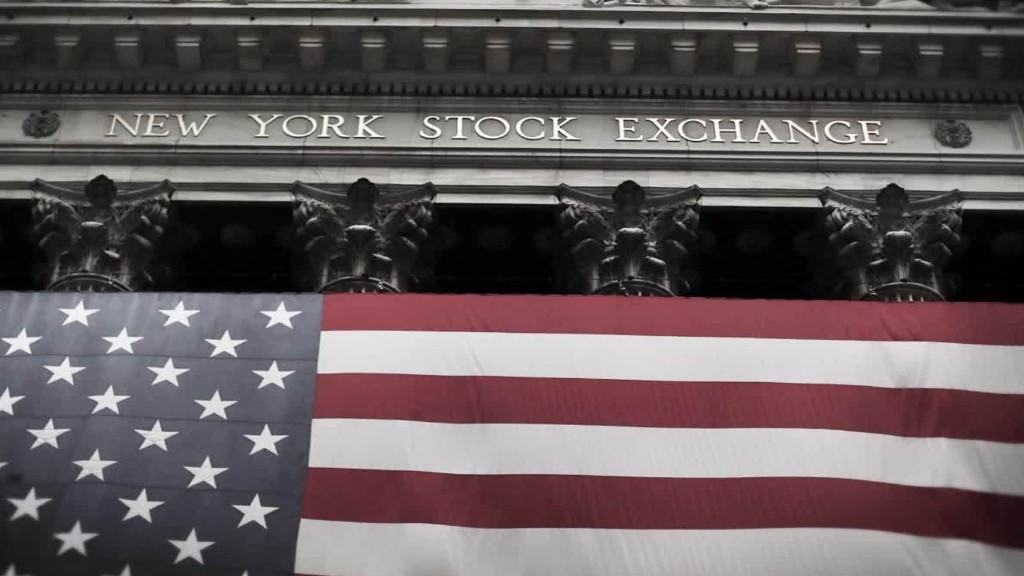
Companies are rushing to the corporate altar to get hitched. It could be a sign that they realize the easy money party may soon be over as the Federal Reserve prepares for an eventual interest rate hike.
King of Beers Anheuser-Busch InBev (BUD) said Wednesday it is planning an offer for rival SABMiller (SBMRY), a deal that could be worth more than $90 billion.
It follows the $13 billion merger of two dental equipment companies Sirona (SIRO) and Dentsply (XRAY) late Tuesday.
And Bloomberg is reporting that AMC Networks (AMCX) -- home of "The Walking Dead" and "Better Call Saul" -- is in talks to buy Starz (STRZA), the cable company controlled by media mogul John Malone.
Related: ABInBev plans takeover bid for SABMiller
It's telling that all this M&A talk is going on as the Fed prepares for one of its most eagerly awaited policy meetings in recent memory. The Fed may announce its first interest rate hike since 2006 on Thursday.
But even if the Fed decides to hold off on raising rates -- as many now believe it will -- investors will almost immediately start speculating about a possible rate hike in December.
It's no secret that the Fed wants to (and should) raise rates sooner rather than later. There isn't a compelling reason for rates to still be near zero. The financial crisis of 2008 is over.
But concerns about China and market volatility may wind up keeping the Fed on the sidelines for a few more months. But nearly all economists believe the Fed will raise rates before long because the U.S. economy --- particularly the job market -- is improving.
And companies around the world realize this. It's easier to do deals when interest rates are at rock bottom. So that's one reason why the urge to merge has intensified.
"Low rates are icing on top of the cake. That's how buyers would view it. It's an extra benefit," said Reed Phillips, managing partner with DeSilva & Phillips, a media investment bank based in New York.
Related: It's time. Why the Fed should hike interest rates
Through mid-September, there was more than $3.1 trillion's worth of mergers announced globally, according to data from Thomson Reuters.
That's only slightly behind the M&A pace of 2007 -- the last time the market was near record highs and just before the Great Recession and credit crunch.
Several of the biggest deals of all-time have already been announced this year, including Royal Dutch Shell's (RDSA) planned $81.5 billion offer for rival oil company BG Group (BRGYY), the pending $79.5 billion merger of Charter Communications (CHTR) and Time Warner Cable (TWC), the $62.6 billion Kraft Heinz (KHC) merger and Anthem's (ANTM) $55 billion takeover of health insurance competitor Cigna (CI).
So what's next? Will a Fed rate hike lead to an end of the M&A boom?
Not necessarily. And definitely not in the short-term.
"Rates are near zero. Even if the Fed raises them, the hike won't be that substantial. Most deals would still make sense financially at these levels," said Stephen Roddenberry, a partner in the merger and acquisition practice with the law firm Akerman LLP in Miami.
Related: AMA says big insurance mergers will raise premiums and hurt quality of care
Roddenberry expects even more mergers in the consumer staples (i.e. food and beverage) and health care sectors as big companies look to get even bigger. He thinks there will be more energy deals too as the collapse in oil prices has created big bargains for larger, opportunistic oil firms.
Still, what about those comparisons to 2007? Is the current wave of mergers a possible sign that the market and U.S. economy may be nearing a peak?
Roddenberry doesn't think so. He says that banks are much healthier now than they were just before the economy went into a tailspin.
Phillips agreed, although he acknowledged that the credit crisis has definitely not been forgotten.
"Anyone who went through 2008 has to be worried. You always have to worry about global events that could shut the door on deal making," he said. "But I think things are different now. There's nothing on the horizon like 2008."
CNNMoney's Alanna Petroff contributed to this report.


